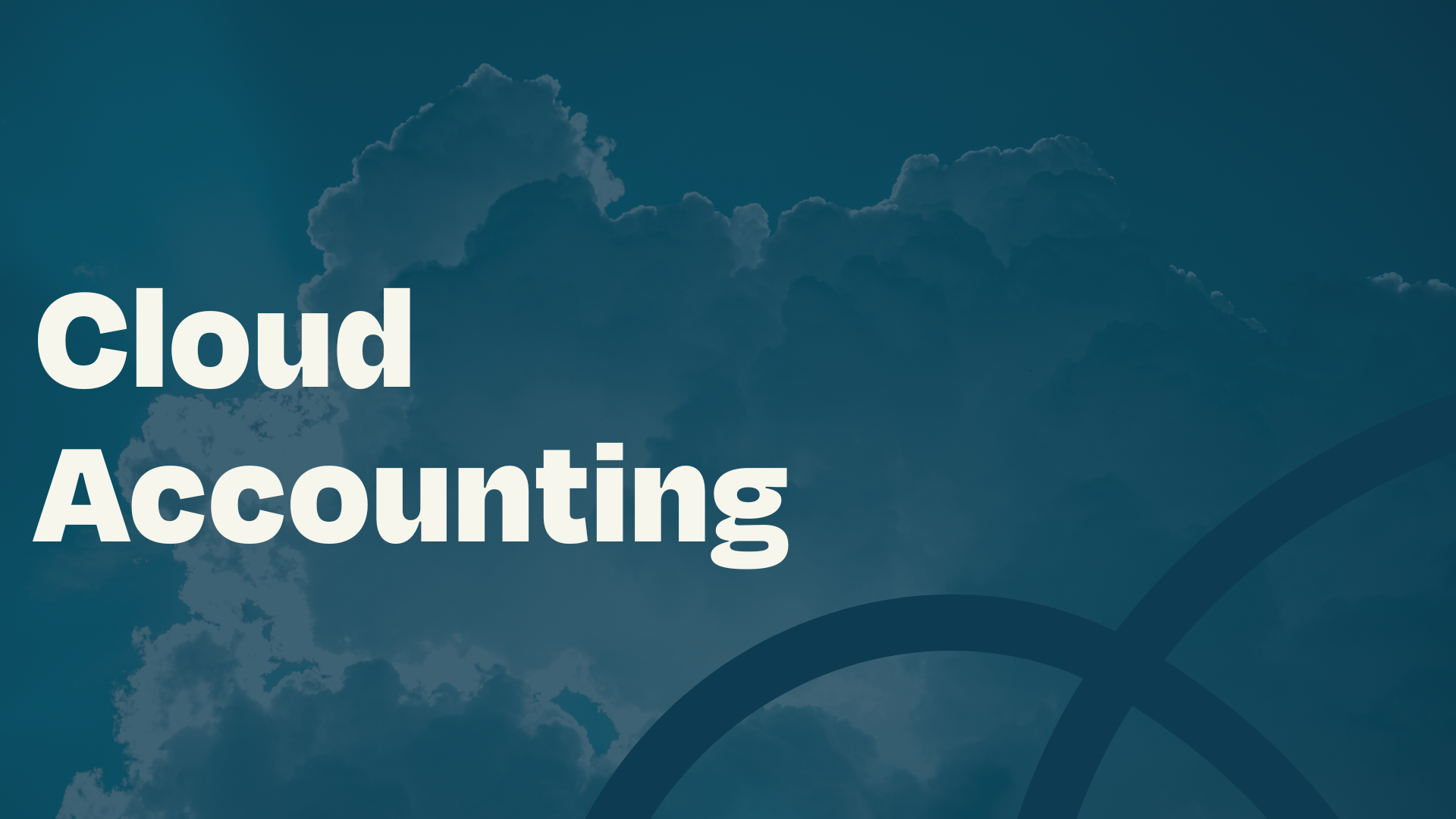Is Bench Bookkeeping Right for You?
Bench is a popular online bookkeeping service that works with clients around the U.S., just like us. We often have potential clients call us and ask,...
6 min read
Enzo O'Hara Garza
:
June 07, 2024

Imagine having access to your financial data anytime, anywhere, and making informed decisions on the go. That’s the reality with cloud-based accounting. With real-time updates, enhanced collaboration, and robust security features, cloud accounting offers numerous benefits that traditional methods simply can't match.
Whether you're looking to streamline financial processes or improve decision-making, embracing cloud accounting can elevate your business to new heights. Let's explore cloud accounting and how it can reshape your financial management.
Essential Takeaways
|
Cloud accounting is a modern approach to financial management that utilizes online software to manage your accounting processes. Instead of relying on traditional desktop-based software, cloud accounting platforms store your financial data securely on remote servers, accessible through the internet.
This means you can access your financial information from any device with an internet connection, at any time (1).
Unlike traditional accounting methods, which require manual data entry and are often prone to errors and delays, cloud accounting offers real-time updates and even some automation of routine tasks. This shift from a completely manual to even a partially automated processes reduces the risk of human error and ensures that your financial data is always current (2).
The core components of cloud accounting include:
Real-Time Access: Instant access to your financial data from anywhere.
Enhanced Collaboration: Multiple users can access and work on the same data simultaneously, improving teamwork and efficiency.
Automated Processes: Routine accounting tasks, such as invoicing and expense tracking, are automated, saving time and reducing errors.
Scalability: Easily scale your accounting needs as your business grows, without the need for expensive hardware or software upgrades (1).
By embracing cloud accounting, businesses can enjoy a more streamlined, accurate, and efficient approach to financial management.
Cloud accounting offers numerous benefits that can significantly improve the way businesses handle their finances. Here are some of the key advantages:
Cost Savings: Cloud accounting reduces the need for expensive hardware, software licenses, and IT support. Subscription-based pricing models also allow businesses to pay only for what they need, making it a cost-effective solution.
Scalability: As your business grows, your accounting needs will evolve. Cloud accounting platforms can easily scale with your business, providing additional features and capabilities without requiring significant investments in new infrastructure.
Improved Accuracy: Automated processes and real-time data updates minimize the risk of human error, ensuring that your financial information is always accurate and up-to-date.
Cloud accounting also streamlines financial processes, making it easier to manage your finances. This improved efficiency allows for better decision-making, as you have access to current, accurate financial data at all times (2).
Security is a top concern for any business, and cloud accounting systems offer strong security features to protect your sensitive financial data. These include:
Data Encryption: Financial data is encrypted both during transmission and while stored on remote servers, ensuring that it remains secure and confidential.
Regular Backups: Rather than needing to backup your desktop data, your data is always backed up when you use cloud accounting software.
If you want to be doubly sure that your data is backed up, you can always something like Control-C or BackUpMyBooks, found the Xero Add On Marketplace.
Access Controls: Advanced access controls allow you to specify who can view and edit your financial data, ensuring that only authorized personnel have access (2).
By leveraging these security features, cloud accounting provides a safe and reliable solution for managing your business's finances.
|
Discover more about accounting in our blog |
Cloud accounting leverages the power of the internet and cloud computing to store, process, and manage financial data. The technology behind cloud accounting involves hosting the accounting software and data on remote servers, which users can access through a web browser or mobile app (2).
Setting up and using cloud accounting software is relatively simple. First, you choose a cloud accounting provider and subscribe to their service. Next, you can set up your company profile, add users, and configure the system to match your business needs.
Once the setup is complete, you can start using the software to manage your finances, such as recording transactions, generating invoices, and tracking expenses.
Popular cloud accounting platforms include Xero (our favorite), QuickBooks Online, and FreshBooks (3,4,5).
These platforms offer a wide range of features, including:
Automated bank feeds
Invoicing and expense tracking
Financial reporting
Inventory tracking
Mobile apps for on-the-go access
The combination of these features and the accessibility provided by cloud technology makes cloud accounting a powerful tool for businesses of all sizes. By automating mundane tasks, providing real-time financial insights, and enabling remote collaboration, cloud accounting software streamlines financial management and helps businesses make informed decisions more efficiently.
At Accounting Prose, we specialize in utilizing Xero, a leading cloud accounting platform, to help our clients optimize their financial management. Xero offers a user-friendly interface, robust features, and seamless integrations with various business tools.
By leveraging Xero's capabilities, we can provide our clients with real-time financial insights, streamlined bookkeeping processes, and expert guidance to help them make informed business decisions.
Our team of experienced accountants and bookkeepers work closely with our clients to set up and customize their Xero accounts, ensuring a smooth transition from their previous accounting methods. We also provide ongoing support, training, and advisory services to help our clients maximize the benefits of cloud accounting with Xero.
Learn more about our accounting and advisory services.
Cloud accounting differs from traditional accounting methods in several key aspects. Traditional accounting typically involves desktop-based software installed on a local computer, with data stored on the same device. This approach limits accessibility and requires manual updates and backups.
In contrast, cloud accounting offers:
Enhanced Accessibility: Access your financial data from anywhere with an internet connection.
Lower Costs: Reduced need for expensive hardware, software licenses, and IT support.
Improved Efficiency: Real-time updates, automated processes, and streamlined collaboration.
Cloud accounting is particularly advantageous for businesses with remote teams, multiple locations, or a need for real-time financial insights. It enables seamless collaboration between team members and provides decision-makers with up-to-date financial information (1,2).
|
Read about more ways to upgrade your accounting processes: |
When selecting a cloud accounting solution, consider your business size, industry, and specific needs. Small businesses may prioritize user-friendliness and affordable pricing, while larger enterprises may focus on advanced features and customization options.
To evaluate different platforms, consider the following factors:
Features and Functionality: Ensure the software offers the features you need, such as invoicing, expense tracking, and financial reporting.
User-Friendliness: Look for a platform with an intuitive interface and easy navigation.
Integrations: Check if the software integrates with other tools you use, such as payment gateways or CRM systems.
Customer Support: Evaluate the quality and availability of customer support, including tutorials, documentation, and live assistance.
Security: Ensure the platform employs robust security measures to protect your financial data (6).
When making your decision, take advantage of free trials or demos to test the software's functionality and user experience. Read reviews from other businesses in your industry and consult with your accountant or financial advisor for their recommendations.
As the world continues to shift toward digital solutions, embracing cloud accounting has become essential for businesses looking to stay competitive and efficient. By leveraging the power of cloud technology, you can streamline your financial processes, gain real-time insights, and make informed decisions that drive your business forward.
We encourage you to explore cloud accounting solutions and discover how they can enhance your business operations. Whether you're a small startup or a growing enterprise, there's a cloud accounting platform that can meet your unique needs and help you achieve your financial goals.
At Accounting Prose, we are committed to helping businesses like yours transition to cloud accounting seamlessly. Our team of experienced professionals specializes in implementing and optimizing cloud accounting solutions, ensuring that you can reap the benefits of this powerful technology.
References
NetSuite. (2021). Cloud Accounting Basics: What It Is & Reasons to Use. Retrieved from https://www.netsuite.com/portal/resource/articles/accounting/cloud-accounting.shtml
Forbes. (2024). The Cloud Effect: Innovations In Finance And Accounting. Retrieved from https://www.forbes.com/sites/forbesbusinesscouncil/2024/03/07/the-cloud-effect-innovations-in-finance-and-accounting/?sh=7e5e097667a4
QuickBooks Online. (2024). Features. Retrieved from https://quickbooks.intuit.com/online/
Xero. (2024). Accounting Software. Retrieved from https://www.xero.com/
FreshBooks. (2024). Features. Retrieved from https://www.freshbooks.com/
Business.com. (2024). How to Choose the Right Accounting Software for Your Business. Retrieved from https://www.business.com/articles/accounting-software/
.png)
Bench is a popular online bookkeeping service that works with clients around the U.S., just like us. We often have potential clients call us and ask,...

1 min read
Are you an entrepreneur who finds yourself spending late nights poring over spreadsheets, trying to make sense of your company's finances? If...

As a startup business, having the right accounting processes in place is essential for success. To get your accounting practices up and running...